Search Results
Showing results 1 to 20 of 23

Changing the Density of a Liquid: Adding Salt
Source Institutions
Learners see that a carrot slice sinks in fresh water and floats in saltwater.

Salt 'n Lighter
Source Institutions
In this activity, learners discover that as the salinity of water increases, the density increases as well. Learners prove this by attempting to float fresh eggs in saltwater and freshwater.
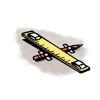
Comparing the Density of an Object to the Density of Water
Source Institutions
Learners compare the weight of equal volumes of wax, water, and clay. Learners discover that since the wax weighs less than an equal volume of water, it is less dense than water and will float.

Defining Density
Source Institutions
In this introductory demonstration and activity, learners are introduced to the concept of density as they explore a rock and a wooden block in water.
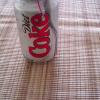
Diet Light
Source Institutions
In this quick activity, learners observe how the added sugar in a can of soda affects its density and thus, its ability to float in water.
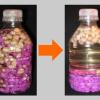
Infant Moon: Moon Mix!
Source Institutions
In this activity, learners investigate the Moon's infancy and model how an ocean of molten rock (magma) helped shape the Moon that we see today.

Density Rainbow
Source Institutions
In this activity, learners mix several sugar solutions to investigate the property of density. Each sugar solution has a different density and color of the rainbow.
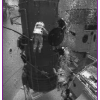
Weighty Questions
Source Institutions
In this activity about humans and space travel (page 1 of PDF), learners compare and contrast the behavior of a water-filled plastic bag, both outside and inside of a container of water.

That Sinking Feeling
Source Institutions
In this quick activity, learners observe how salinity and temperature affect the density of water, to better understand the Great Ocean Conveyor.

Sink or Float?
Source Institutions
In this water activity, learners test which objects float and which sink. Learners discover that objects behave differently in water.
Float or Sink?
Source Institutions
In this water activity, learners test which objects float and which sink. Learners discover that objects behave differently in water.
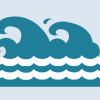
The Carbon Cycle Game
Source Institutions
In this activity, learners take on the role of a carbon atom and record which reservoirs in the carbon cycle they visit.
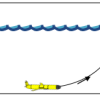
Exploring the Ocean with Robots
Source Institutions
In this activity, learners are introduced to robotic submarines called gliders. Learners make “gliders” from plastic syringes and compare these to Cartesian bottles and plastic bubbles.

Density Rainbow and the Great Viscosity Race
Learners conduct two activities to investigate two properties of liquids: density and viscosity. In a clear container, learners stack 7 different liquids which will layer according to their density.
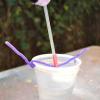
Floating Head Cup
Source Institutions
In this activity, learners watch a figure "magically" float up through the air.

Uplifting Force: Buoyancy & Density
Source Institutions
In this investigation, learners explore the force known as buoyancy by placing various objects into water and observing how they behave (for example, which sink more quickly, which float, how much wat

Below the Surface: Surface Tension II
Source Institutions
In this activity learners explore surface tension. Why are certain objects able to float on the surface of water and how do detergents break the surface tension of water?

Changing the Density of an Object: Adding Material
Source Institutions
Learners see that a can of regular cola sinks while a can of diet cola floats. As a demonstration, bubble wrap is taped to the can of regular cola to make it float.

Boats Afloat
Source Institutions
In this water activity, learners build boats that float and sink. First, learners listen to the book, "Who Sank the Boat" and practice making predictions throughout the story.
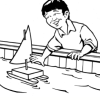
Prepare for a Dock Shop Field Trip
Source Institutions
In this activity, learners explore what makes a boat float and sink. They examine and test various objects to determine why objects float or sink.
